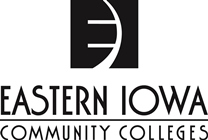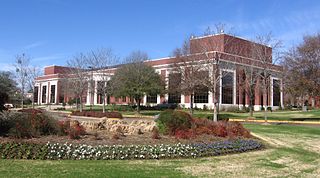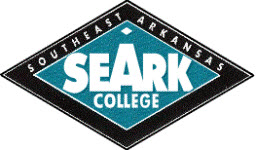
A community college is a type of undergraduate higher education institution, generally leading to an associate degree, certificate, or diploma. The term can have different meanings in different countries: many community colleges have an "open enrollment" for students who have graduated from high school. The term usually refers to a higher educational institution that provides workforce education and college transfer academic programs. Some institutions maintain athletic teams and dormitories similar to their university counterparts.

Northern Virginia Community College is a public community college with six campuses and four centers in the Northern Virginia suburbs of Washington, D.C. Northern Virginia Community College is the third-largest multi-campus community college in the United States, and it is the largest educational institution in the Commonwealth of Virginia.

Central Georgia Technical College (CGTC) is a unit of the Technical College System of Georgia (TCSG) and provides education for an eleven-county service area in central Georgia. The school's service area includes Baldwin, Bibb, Crawford, Dooly, Houston, Jones, Monroe, Peach, Pulaski, Putnam, and Twiggs counties. CGTC is accredited by the Commission on Colleges of the Southern Association of Colleges and Schools (SACS) to award associate degrees, diplomas, and technical certificates of credit.

Rochester Community and Technical College (RCTC) is a public community college in Rochester, Minnesota. It serves more than 8,000 students annually. The college was founded in 1915 on a motion by Charles Mayo to the Rochester School Board and is Minnesota's oldest original community college.

The Eastern Iowa Community Colleges (EICC) includes three community colleges stretched along the Mississippi River in the U.S. state of Iowa. Eastern Iowa Community Colleges consists of the Iowa counties of Clinton, Muscatine, and Scott. The EICC administrative offices are in Davenport.
The City Colleges of Chicago is the public community college system of the Chicago area. Its colleges offer associate degrees, certificates, free courses for the GED, and free English as a second language (ESL) courses.

Hinds Community College is a public community college with its main campus in Raymond, Mississippi, United States and branches in Jackson, Pearl, Utica, and Vicksburg. The Hinds Community College District includes Hinds County, Claiborne County, part of Copiah County, Rankin County, and Warren County. With an enrollment of over 12,000 students at six campuses, it is the largest community college in Mississippi.

East Mississippi Community College (EMCC), formerly East Mississippi Junior College, is a public community college in Scooba, Mississippi. EMCC serves and is supported by Clay, Kemper, Lauderdale, Lowndes, Noxubee and Oktibbeha counties in east central Mississippi. The college has two principal campuses in Scooba and Mayhew, Mississippi and offers courses at five other locations. One of fifteen community colleges in Mississippi, EMCC is accredited by the Southern Association of Colleges and Schools Commission on Colleges (SACSCOC) to award the Associate of Applied Science degree and the Associate of Arts degree.

Northeast Mississippi Community College (NEMCC) is a public community college in Booneville, Mississippi.
Education in Kentucky includes elementary school, middle school, high school, and post-secondary institutions. Most Kentucky schools and colleges are accredited through the Southern Association of Colleges and Schools (SACS).
Elgin Community College (ECC) is a public community college in Elgin, Illinois. It was founded in 1949 as part of Elgin Area School District U46. Community College District 509 was formed 17 years later in 1966, a year after Illinois legislators created the Illinois Community College System. Most of the District is in Kane County with portions in DeKalb, Cook, McHenry, and DuPage. The 360-square-mile (930 km2) District serves 300,000 people, 11,000 businesses, four public school districts, and 15 high schools.

College of Western Idaho (CWI) is a public community college in Southwest Idaho with its primary campus locations in Boise and Nampa. CWI also offers classes at several community locations throughout the Treasure Valley. It is one of four comprehensive community colleges in Idaho and is governed by a five-member board of trustees elected at large by voters in Ada and Canyon counties.
Coahoma Community College (CCC) is a public historically black community college in Coahoma County, Mississippi. The college was founded in 1949 and is accredited by the Southern Association of Colleges and Schools Commission on Colleges. It offers associate degree and certificate programs in more than 70 areas of focus.

The Florida College System, previously the Florida Community College System, is a system of 28 public community colleges and state colleges in the U.S. state of Florida. In 2020–2021, enrollment consisted of 640,183 students. Together with the State University System of Florida, which consists of Florida's twelve public universities, the two systems control all public higher education in the state of Florida.
In the United States, community colleges are primarily two-year public institutions of tertiary education. Community colleges offer undergraduate education in the form of an associate degree. In addition community colleges also offer remedial education, GEDs, high school diplomas, technical diplomas and tech certificates, and in rare cases, a limited number of 4-year bachelor's degrees. After graduating from a community college, some students transfer to a four-year college or university to continue their studies leading to a bachelor's degree. Community college is tuition-free for selected students in 47 states, often under the name College Promise. Most community college instructors have advanced degrees but serve as part-time low wage employees.

The Mississippi Department of Transportation (MDOT) is the organization in charge of developing and maintaining all state and federal roadways in the U.S. state of Mississippi. In addition to highways, the department also has a limited role in supporting Mississippi's public transportation system, ports and waterways system, aeronautics and railroads. MDOT is headquartered in downtown Jackson.

Southeast Arkansas College (SEARK) is a public community college in Pine Bluff, Arkansas. Formerly a vocational-technical school, the state legislature designated the school as a college in 1991 with the name Pines Technical College. It acquired its current name in 1998.
J.F. Drake State Community and Technical College is a public, historically black community and technical college in Huntsville, Alabama. The college was founded as Huntsville State Vocational Technical College in 1961. Drake State is accredited by the Southern Association of Colleges and Schools and offers associate degrees, certificates and non-credit courses through its 16 programs.
Georgia Piedmont Technical College (GPTC) is a public community college based in Clarkston, Georgia. It is part of the Technical College System of Georgia (TCSG) and provides education for a three-county service area, mostly in the metro Atlanta area. The school's service area includes Dekalb, Rockdale, and Newton counties. GPTC is accredited by the Commission on Colleges of the Southern Association of Colleges and Schools (SACS) to award associate degrees, diplomas, and technical certificates of credit. Many of the school's individual technical programs are also accredited by their respective accreditation organizations. The College also offers free Adult Education courses for GED and HiSet test preparation and English as Second Language programming. Its Economic Development and Continuing Education division provides customized business and industry training to strengthen the workforce pipeline in Metro Atlanta.
Mayland Community College is a public community college in Spruce Pine, North Carolina. The college also operates learning centers in Newland and Burnsville. The name of the college is derived from the three counties it primarily serves: Mitchell, Avery, and Yancey. It is part of the North Carolina Community College System.











